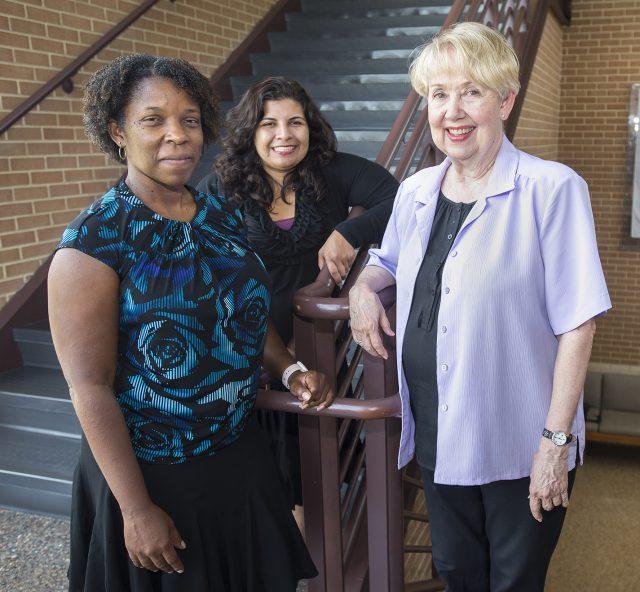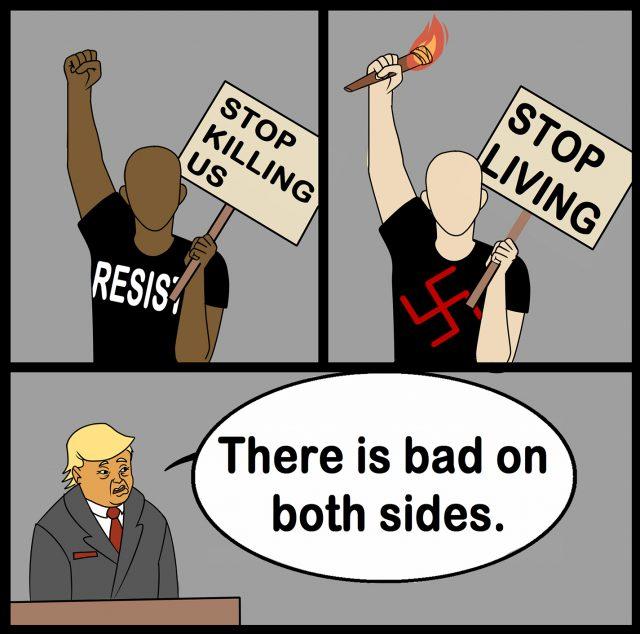By Kathryn Kelman/editor-in-chief
In the wake of the Trump administration’s decision to rescind the Deferred Action for Childhood Arrivals program, TCC students sought support from their college.
25 TCC students rallied together Sept. 14 in an effort to get the college to acknowledge DACA recipients and the issues they are currently facing, South student and LASSO president Paloma Gutierrez said.
Gutierrez is a DACA recipient who came to the U.S. at the age of 5 with her sister and her mother. A lot of obstacles came with that, she said.
“I believe DACA was what’s supposed to help us,” she said. “It’s a program that helps me be here in the U.S. legally. It gives me access to working here legally as well, having Social Security, having driver’s licenses, getting, you know, whatever it is that I need to have a good future ahead of me, which one of them being having an education.”
The idea for a protest arose after Gutierrez spoke with a friend that attends the University of Texas at Arlington. Her friend told her about the public statement UTA had made in support of their DACA students regarding the resources the college had available for them, she said.
“That’s whenever it kind of hit me like, ‘Do I really have my college’s support?’ and that’s what most of us were thinking of too, like ‘Does TCC support us?’” she said.
The protest’s main goal was to get the attention of South Campus president Peter Jordan, Gutierrez said.
“We wanted to feel like we had protection, that we had support from TCC,” Gutierrez said.
In response to protesters’ request TCC make a statement on DACA, Jordan said that each institution has a right to make whatever statements they choose to make and, as an institution, they need to follow their leadership.
“Our chancellor has made a statement that we respect everyone, and that’s the kind of environment we provide here, but we also provide resources for all students to make sure that our students are being educated in a safe and friendly and respectful environment,” he said.
Those are the kind of statements that TCC has chosen to make, Jordan said.
“Not necessarily political statements, but I think that we’re trying to educate students to really make distinctions,” he said. “So what is the difference between making a political statement and making a statement about resources through the college to help students address their issues?”
The students also sought to educate those in their TCC community, she said.
During the protest, many students spoke and shared their opinions as well as their own personal struggles as DACA recipients or friends/family members. They also shared statistics about DACA, including the fact that 100 percent of the recipients have no criminal record.
“We wanted our community to hear us out cause some people aren’t educated on DACA,” Gutierrez said.
South student Denver Manikam also spoke during the protest. Manikam grew up in South Africa and is familiar with the struggles immigrants face, though he wanted to make sure students weren’t just blaming Trump for the decision he and his administration made about DACA.
“Obama had the House, the Senate and the presidency, and he didn’t get it passed when he had the chance,” he said. “So, Obama because he was time-constrained and he knew his time was up, he put the executive order through.”
It was a temporary fix, Manikam said.
“An executive order is not the law. It’s just something temporary,” he said. “They should’ve passed a bill, but these politicians continued to play politics with people’s lives, and the Democrats still aren’t getting the job done.”
This is unfair, Manikam said. He encouraged the students to blow up social media to hold Congress and the rest of the U.S. government accountable and to not let this issue go.
Following the protest, about 35 students sat down with Jordan along with communications, public relations and marketing executive director Suzanne Groves and TCC police Lt. Darren Clark to discuss their concerns during a closed meeting. After the meeting, Gutierrez felt the students accomplished their goal.
Prior to the meeting, Jordan spoke about how important it was for students to recognize that TCC is about offering access to education and creating a safe environment where the campus community shows respect.
“As far as this protest goes, students are demonstrating how they feel and we respect that and appreciate it,” he said. “What I also hope is that, students would take advantage of the resources that are available to them.”
Unfortunately, a majority of the campus community doesn’t really know how to help students because they don’t have all the answers and are not immigration attorneys, Jordan said.
“But as a college, we have resources that our chancellor pointed students to. Our Family Empowerment Center is an example,” he said.
Just after classes started, South brought in a partner to talk to students about and had a forum around Senate Bill 4. SB4 is a bill that was passed in Texas banning sanctuary cities and allowing campus police to inquire about a student’s citizenship status.
Additionally, the campus hosted a citizenship workshop Sept. 9 where students had access to individuals trained to help students alleviate their fears and concerns by giving them factual legal information, Jordan said.
“So while most of us, whether it’s faculty, staff or administrators, might not have all the answers that students need, we are providing access to those resources, but students need to take advantage of those resources,” Jordan said.
The meeting with Jordan was not scheduled ahead of time. The students were approached to sit down with Groves, Clark and Jordan because of the protest, Gutierrez said.
“At the end of the meeting, we were able to feel the support that we wanted,” she said. “I’m glad we all united together to make a change, which we did today, and I’m proud to say that we did. As we talked to Dr. Jordan, he gave us a list of what we could do, who to reach out to, who were those people that have power just like him and higher power.”
Groves also gave the students a list of additional ways to get involved and get help, Gutierrez said. The LASSO students also asked Clark to attend their meetings to keep them up to date on DACA as well as other issues affecting immigrants like SB4.
“We feel more confident in having their support now,” Guttierez said.










































